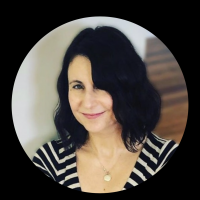Recently, I heard a meditation instructor use the term “liminal space.”
I’d never heard it before, but I discovered that “liminal” stems from the Latin word “limen,” meaning “threshold.” “Liminal space” is the space and time between what was and what’s yet to come.
Upon learning this, a familiar wave of energy and excitement ran through me. This concept had been nagging at me for a while and asserting its importance. Now I could name it!
Career shifts. Hallways and highways. That weird experience of being not-yet-asleep, but no longer awake. Those are all liminal spaces; they all have the potential to reshape our inner and outer worlds.
Sometimes, we decide to enter these transitional spaces. Sometimes, like now, the universe puts us there. So here we are, each of us navigating the liminal space between our pre-COVID way of life and the vast post-COVID unknown.
Here, in the United States, the pandemic ushered in a shift in our collective consciousness. It lifted the veil on hard truths for many of us, and our newfound clarity has compelled us to drive crucial socio-political transformations.
Movements for racial justice and law enforcement reform have a renewed sense of urgency and resolve—especially for those of us who once had blinders on. And as we prepare for another presidential election, political agendas are under intense scrutiny.
When we turn our gaze inward, transitional spaces invite (or demand) a shift in perspective; they evoke feelings and allow growth. It’s not always pleasant or wanted, but the uncomfortable conditions are ideal for illuminating conflicting emotions.
There’s an invitation to get curious about ourselves and how we choose to live in these spaces. But let’s be real—if we’re sick, in a stage of acute grieving, or otherwise overwhelmed, introspection likely feels like a luxury we don’t have. Still, it’s a standing invitation—available when we come up for air. (And we will.)
Throughout our lives, liminal spaces are potent reminders that most things in life are fluid and evolving; they are subject to change without notice.
Yet we tend to define ourselves—and others—in fixed terms. Why?
When we inadvertently let go of the idea that anything about us needs to be defined, new experiences and interests emerge.
I’ve played drums. I’ve curated intellectual salons. During quarantine, I’ve even found my groove in the kitchen. I wonder how many aspects of ourselves are dying to emerge if we would just allow ourselves to be open to them?
“I’m not a musician.” “I’m not creative.” “I’m not a cook.” All of these are just stories I’ve told myself, or that others have told about me. And none of them are true. Maybe you have some stories, too.
It’s understandable to feel lost right and miss the gifts we’re being offered. Boyd Varty, in his book The Lion Tracker’s Guide to Life, wrote:
“If something is all you’ve ever known, you mistakenly believe that’s just how it is.”
With being lost comes the opportunity to realize that there is, in fact, another way. There’s another path, another experience, another perspective. The blinders come off, and our inner and outer worlds open up.
But for the moment—I kind of like it.







Read 48 comments and reply